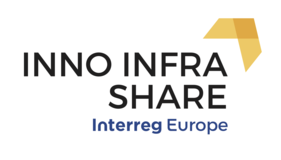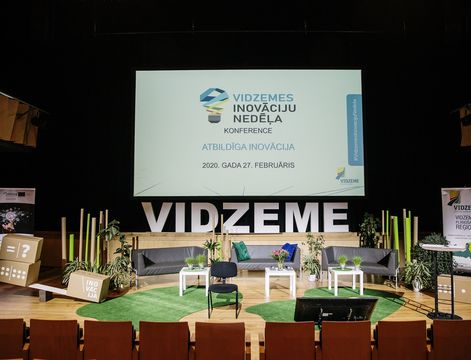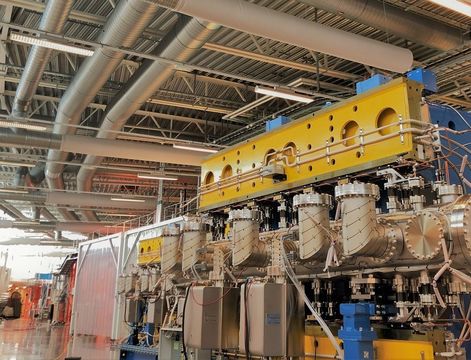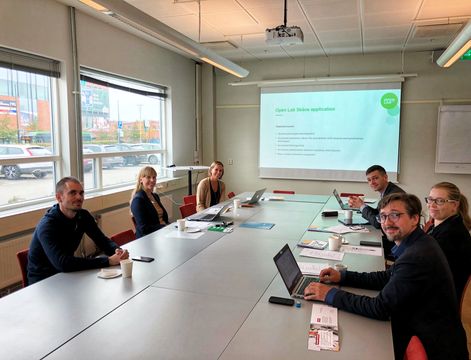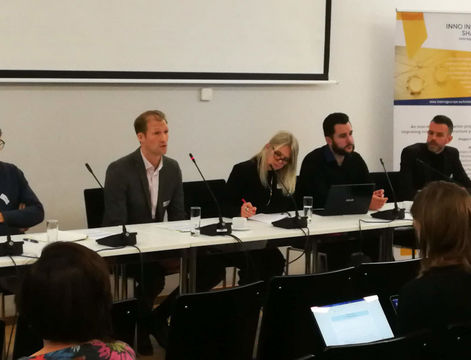The INNO INFRA SHARE project organized a conference in Brussels on November 22nd, 2018 to discuss the future agenda of research and innovation infrastructures (RIIs) in Europe and its contribution to the European Union's (EU) innovation development and regional economic growth.
The conference had two panel discussions - “Facilitating the use of RIIs through interregional collaboration and shared access” and “Improving policies to foster better access to research and innovation infrastructures.” Alison Hunter, Director of Economic and Public Policy Consultancy (EPPC) moderated the two panel discussions. Among the speakers were Frédéric Sgard from the Global Science Forum Secretariat, OECD, Wim de Kinderen, International Project Manager at the Brainport Eindhoven EU Office, Frederik Melander from Science Village in Sweden, Carl Malm from Innovation Skåne in Sweden, Pierre Padilla at N-ABLE, Sophie Viscido, Policy Officer at the European Association of Research and Technology Organizations (EARTO), Sonia Pazos at the International Iberian Nanotechnology Laboratory, INL, in Brussels, Maria Moragues-Cavanos at DG RTD, Jose Freitas from DG GROW and Silvano Bertini, a representative from the Emilia-Romagna managing authority.
Panellists emphasized that European companies need new technologies and solutions that can only be supplied by the RIIs - in many cases, by RIIs located in different EU regions. Thus, not only availability, but also accessibility of RIIs is important. Equally important are regional and EU level policies and strategies that facilitate the RII accessibility and enable easier cross-border collaboration and RII sharing.
Wim de Kinderen, an International Project Manager from Brainport Eindhoven's EU Office, stressed that companies are interested in cooperating with RIIs from other EU regions, but currently often face various national constraints that need to be reduced in the next EU programming period in order to facilitate business access to infrastructures in any region in the EU.
The shaping of the next programming period was elaborated by the representative of the EC DG REGIO Katja Reppel. She discussed the importance of RIIs for promoting economic growth in the regions, with a particular emphasis on the Thematic Smart Specialization Platforms (TSSP) as one of the key tools for implementing the Smart Specialization Strategy (RIS3). The Interregional innovation investments approach (component 5) which will allow EU regions to invest ERDF funding into cross-border collaboration and will enable easier cross-border RII accessibility, was also addressed by Ms. Reppel, as an important step in the direction of greater RII accessibility. There will be more focus on initiatives between regions that will enable researchers to develop their companies and commercialize research results and to develop active cooperation with researchers and companies in other regions of the EU, not only within the Horizon2020 and Interreg, but also as part of the ERDF core programs in the next period. It will also mean an increasing focus on the internationalization of RIIs - the need for RIIs to attract co-operation partners from other countries, as well as opportunities for realizing cross-border investments in RIIs.
The OECD representative Frédéric Sgard, a coordinator of Global Science Forum Secretariat acknowledged that from the international perspective, Europe has a significant advantage in terms of the density and proximity of RIIs placement, as well as the existing range of collaborative models. He noted that in order to internationalize the RIIs by expanding the range of services to companies and research partners abroad, the issues of human resources need to be solved both in terms of the available resources and new competences. Mr. Sgard stated that we cannot look at RIIs just from a business perspective, and one should not expect the RIIs to be able to operate solely on a commercial basis, therefore the importance of public funding for the development and maintenance of RIIs.
Pierre Padilla, a founder of “N-ABLE” stressed that too often looking for ways to promote the openness of RIIs, the main goal of why such an opening is necessary, is forgotten. In his opinion, the main goal is to reduce investment gaps and to promote business development. The importance and sustainability of intermediary organizations – such as clusters and innovation hubs as a facilitator of RII accessibility and technology deployment to industry, was emphasized by Jose Freitas, policy officer of DG GROWTH Unit Advanced Technologies, Clusters and Social innovation. Mr. Freitas explained that clusters can serve as instruments connecting different RIIs and companies from different regions, however, in his view, this activity can not only be based on separate Interreg and Horizon2020 projects, but clusters should receive long term support in order to ensure their sustainability.
